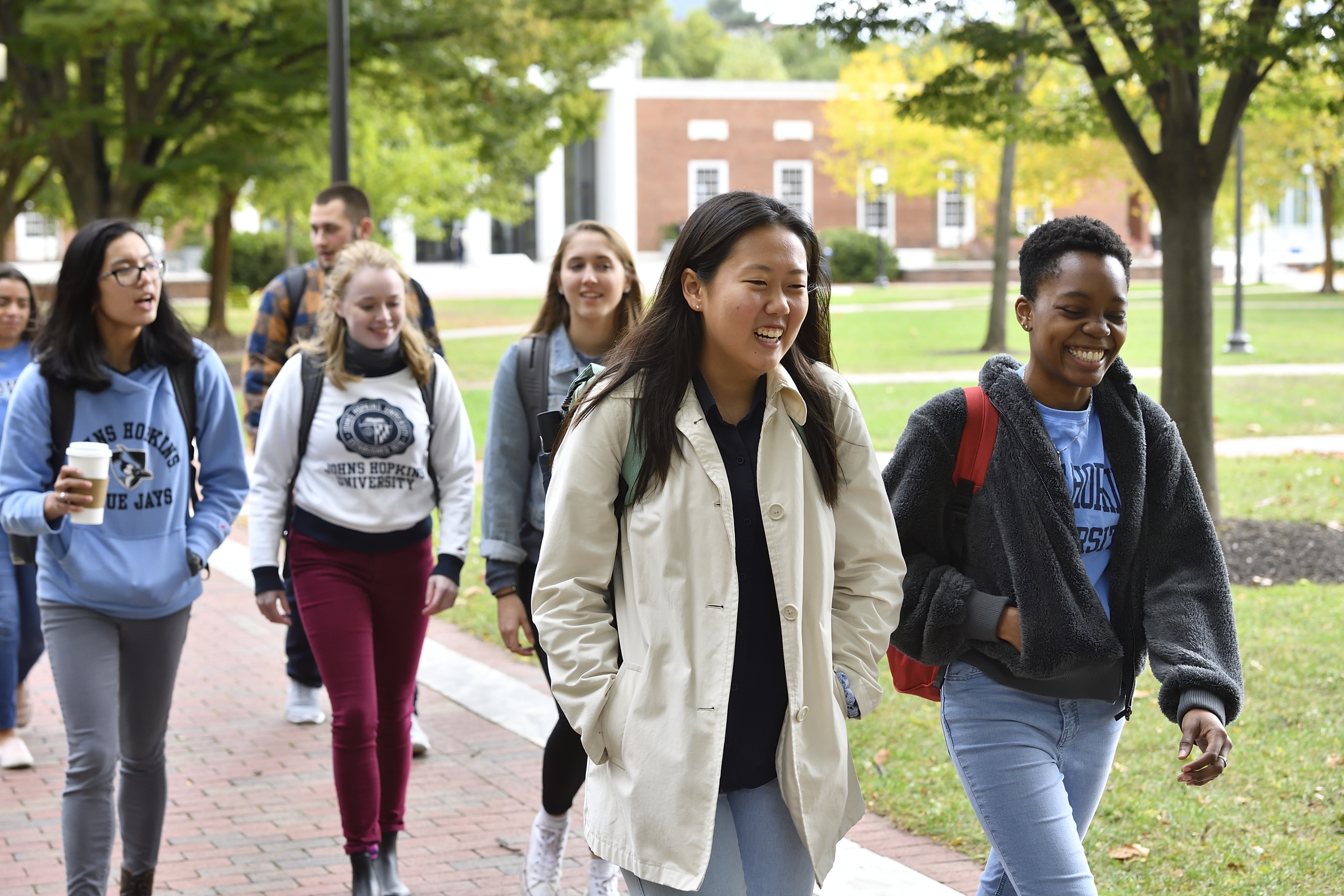Immunoengineering Courses
Traditionally, immunology and engineering were taught as two separate and distinct disciplines. The lack of quality educational overlap created a gulf that has been challenging to bridge. To develop the next generation of trainees fluent in both immunology and engineering, we have built an entire subdiscipline within the Johns Hopkins biomedical engineering training program focused in immunoengineering. Through this, we aim to present a wider view of what immunology is and how quantitative engineering, nanoscience, and biomaterials can interface with immunology to solve biomedical problems.
Current courses are available to Johns Hopkins students and can be found in SIS and the Johns Hopkins Public Course Search.

Advanced Topics in Regenerative and Immune Engineering
This four-credit course is designed as part of the core curriculum for the RIE track for the Department of Biomedical Engineering masters program. Topics are selected based on current methods, basic research, and clinical translation of regenerative medicine and immune engineering technologies. Background Knowledge: EN.580.641, EN.580.642, and EN.580.751 or graduate standing and permission of the instructor.
Advances in Immunoengineering
In this course we will first discuss the immune system, focusing on understanding differences between the innate and adaptive portions. We will then explore engineering of immunotherapies including the use antibodies, engineered cells, vaccines and biomaterials for stimulating or suppressing the immune system. We will conclude the course by discussing future directions of immunoengineering research, including some of the work being done at Johns Hopkins School of Medicine. This course is for undergraduate students.
Engineering Cells for Cancer Immunotherapy
This course will overview the nascent field of cell therapies, where artificial manipulation allows the generation of immune effectors that can recognize, kill, and eliminate cancer. The role of the immune system in fighting malignancies and how it fails will be discussed, followed by strategies to reinvigorate or boost the relevant cells. A particular focus will be given on using biomaterials platforms to adopt these approaches in vivo – students will have the opportunity to design and pitch a cell-based immunotherapy platform at the conclusion of the course. This course is for undergraduate students.
Immunoengineering: A New Frontier
What therapy could cure debilitating diseases such as cancer, HIV, allergies, diabetes, Alzheimers, or influenza? Engineers and immunologists are attempting to create this with your body’s own immune system. Understanding how these therapies work, how they might work in the future, and how to apply engineering principles to enhance these therapies will be the focus of this course. This course if for undergraduate students.
Immunoengineering Principles and Applications
This course focuses on the application of engineering fundamentals to design cell/tissue-based systems for modulating immune response in treating disease. Concepts of immune cell development, surveillance, migration, and activation/inhibition will be introduced. Students will learn tissues in the body important for trafficking of immune players to local sites of therapeutic response, as well as techniques used for their characterization. Engineering concepts required to alter immune cell or tissue function will be explored. Emphasis will be placed on synthetic biology methods such as viral or CRISPR-based techniques as well as necessary (pre/post) isolation and adoptive transfer techniques. This course is for undergraduate and graduate students.
Immunomodulatory Biomaterials: Design, Synthesis, and Applications
The objective of this course is to teach students the chemistry, immunology, and materials engineering fundamentals necessary to develop novel materials that modulate immune responses for the treatment and prevention of diseases. This course will present many of the small molecule and polymer chemistry strategies used to synthesize state-of-the-art biomaterials. The concepts of spatio-temporal delivery of therapeutics, biomaterials degradation, biocompatibility, and various structure-function relationships between biomaterials and the immune system will be introduced. The role played by adaptive and innate immunity in the development and persistence of cancer, infectious diseases, and autoimmunity will be explored. Emphasis will be placed on the design elements that have been, and could be, engineered into immunomodulatory materials to improve human health outcomes. This course if for undergraduate and graduate students.
Independent Study: Advances in Immunoengineering
Our winter workshop, Advances in Immunoengineering, offers a one-credit pass/fail intersession course. It investigates the diverse and complex fields of engineering and immunology and how it is transforming patient treatment in cancer, autoimmunity, regeneration, and transplantation. Course assessments include required lecture attendance and weekly quizzes. The class is listed as Independent Study: Advances in Immunoengineering for undergraduate and graduate students.
Molecular Immunoengineering
An in-depth study of the use of biomolecular engineering tools and techniques to manipulate immune function for clinical translation. The course will begin with a brief overview of the immune system, placing a particular emphasis on the molecular-level interactions that determine phenotypic outcomes. The remainder of the curriculum will address ways in which integrative approaches incorporating biochemistry, structural biophysics, molecular biology, and engineering have been used either to stimulate the immune response for applications in cancer and infectious disease, or to repress immune activation for autoimmune disease therapy. This course is available to undergraduate and graduate students.
